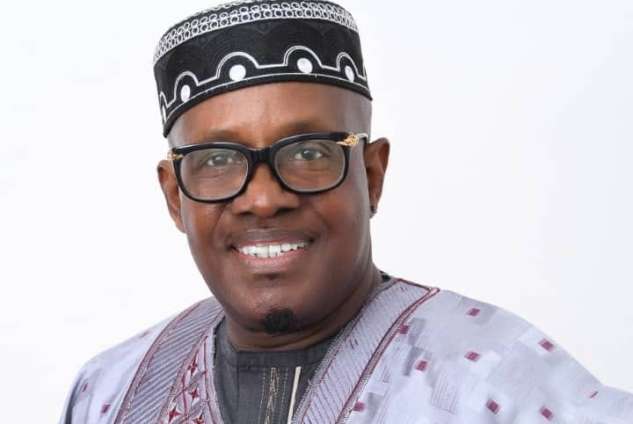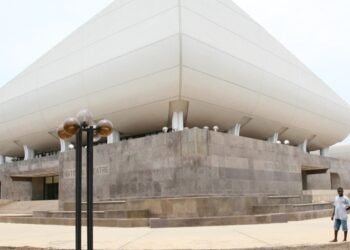Guitar-driven music has been central to Ghana’s soundscape for decades.
From the lilting lines of classic highlife to the acoustic touches in contemporary gospel and Afro-fusion, the guitar has carried melodies, told stories, and anchored live ensembles.
Yet musicians, bandleaders, and music educators across Ghana increasingly report a scarcity of competent guitarists. If left unaddressed, this shortage risks eroding performance quality, narrowing musical diversity, and undermining livelihoods in the live-music ecosystem.
President of the Musicians Union of Ghana (MUSIGA), Bessa Simons, has expressed concern about the shortage of guitar players in the country.
Simons linked the situation to his “one musician, one musical instrument” campaign pledge, which he said has not yet been fulfilled but is still being pursued.
“When I said one musician, one musical instrument, it means it is very good if you learn how to play a musical instrument. It’s an added value. Because with music, you need to have so many streams of income. We have a deal with Virtual Sounds that every musician can own an instrument, so we can get you this facility that you can pay in instalments. You put a deposit down so you can learn.”
Bessa Simons
According to him, learning instruments is vital for musicians, particularly because of the scarcity of guitarists in Ghana.
“So the idea is if you don’t know how to play a guitar, [especially now] that we are running short of guitarists in Ghana, there is a lot of job for you out there. You can play in church, you can play in a band, you can understand music better.”
Bessa Simons
Bessa Simons further urged musicians to register with MUSIGA, noting that the union has rolled out several initiatives to improve members’ welfare and working conditions.
Meanwhile, MUSIGA is set to launch Ghana’s first all-female music festival, SheRhythms, on Friday, 29th August 2025, ahead of the main event in December.
The guitar is more than an instrument: it is a vehicle for musical memory. Highlife’s signature rhythmic arpeggios and call-and-response patterns were built around stringed instruments; contemporary artists still use guitar textures to connect modern productions to that lineage.
In live settings—such as churches, festivals, bars, and studios—skilled guitarists create nuance, improvisation, and interaction that pre-programmed tracks or cheap synth sounds cannot fully replicate. Therefore, a decline in available guitarists has cultural as well as economic implications.

Many musicians struggle to make a stable living. For talented young players, teaching, studio gigs, and steady band work often pay little compared to alternative careers or migration.
The COVID-19 pandemic exacerbated this instability by shrinking live gigs and incomes, prompting some musicians to leave music entirely or seek opportunities abroad.
Skilled musicians sometimes relocate to larger regional hubs (e.g., Lagos, Johannesburg) or to Europe and North America for better pay and exposure. This outflow reduces the pool of experienced teachers and band members available to train the next generation.
Historically, young musicians learned their craft through apprenticeships with established players in church bands, community ensembles, and local clubs. Urbanization, shifting leisure patterns, and the commercialization of music have weakened these informal learning pathways.
While Ghana has tertiary institutions with music departments, curricula often prioritize theory, ethnomusicology, or classical training over contemporary guitar technique, ensemble playing, and popular-music styles. Access to quality, affordable instruction at the grassroots level—especially outside major cities—is limited.
Quality guitars and reliable repairs are expensive, and instrument supply chains in some regions are inconsistent. For aspiring players from low-income households, initial costs and upkeep are barriers.
Addressing this shortage requires multi-pronged, realistic interventions that combine education, economic incentives, and cultural promotion.
MUSIGA, GHAMRO, and the National Commission on Culture can spearhead campaigns to document guitar traditions, fund scholarships, and lobby for policy that protects musicians’ incomes.
Media campaigns highlighting guitarists and their role in Ghanaian music can raise public appreciation and demand.
Way Forward

The shortage of guitarists in Ghana is not simply a labor-market problem; it is a cultural challenge with economic consequences.
The solutions are practical and achievable—if educators, industry leaders, policy makers, and communities act together.
By investing in education, creating sustainable livelihoods for musicians, supporting instrument access, and promoting the cultural value of live performance, Ghana preserves the guitar’s central place in its music while adapting to contemporary realities.
Protecting this instrument’s role is protecting a living thread of national identity; it is an investment in generations of music-makers and the audiences who sustain them. The time to act is now.
READ ALSO: GBC Boss Refutes Mismanagement Allegations Amidst Staff Protests























